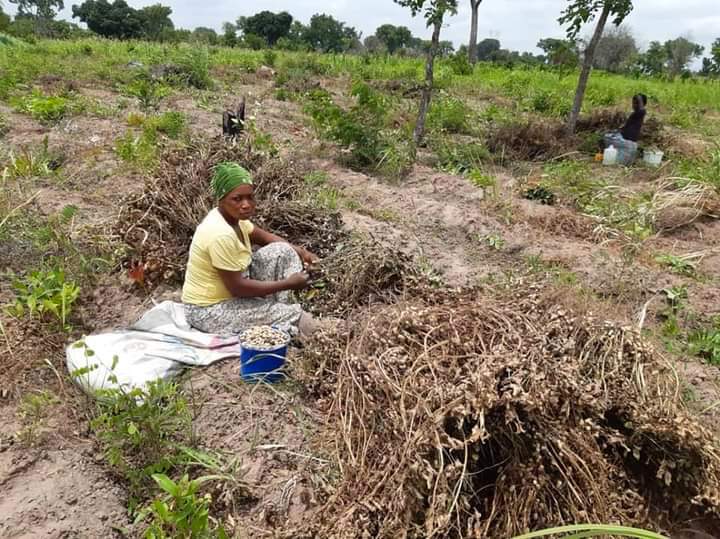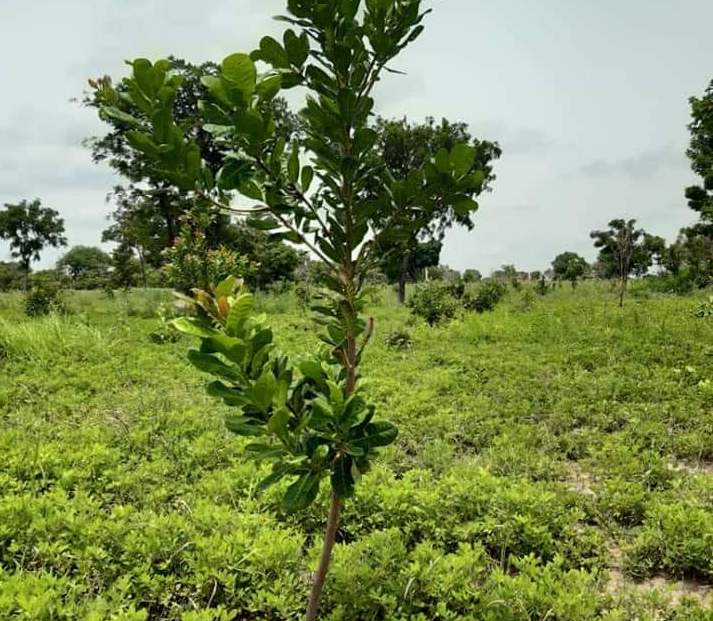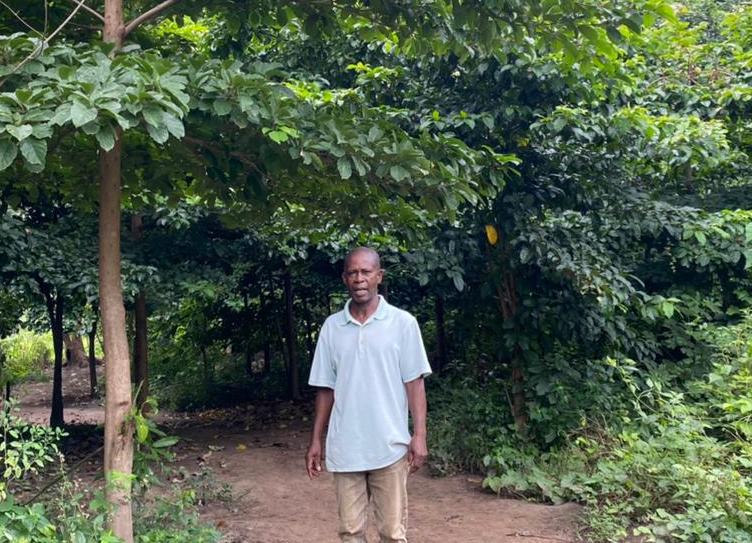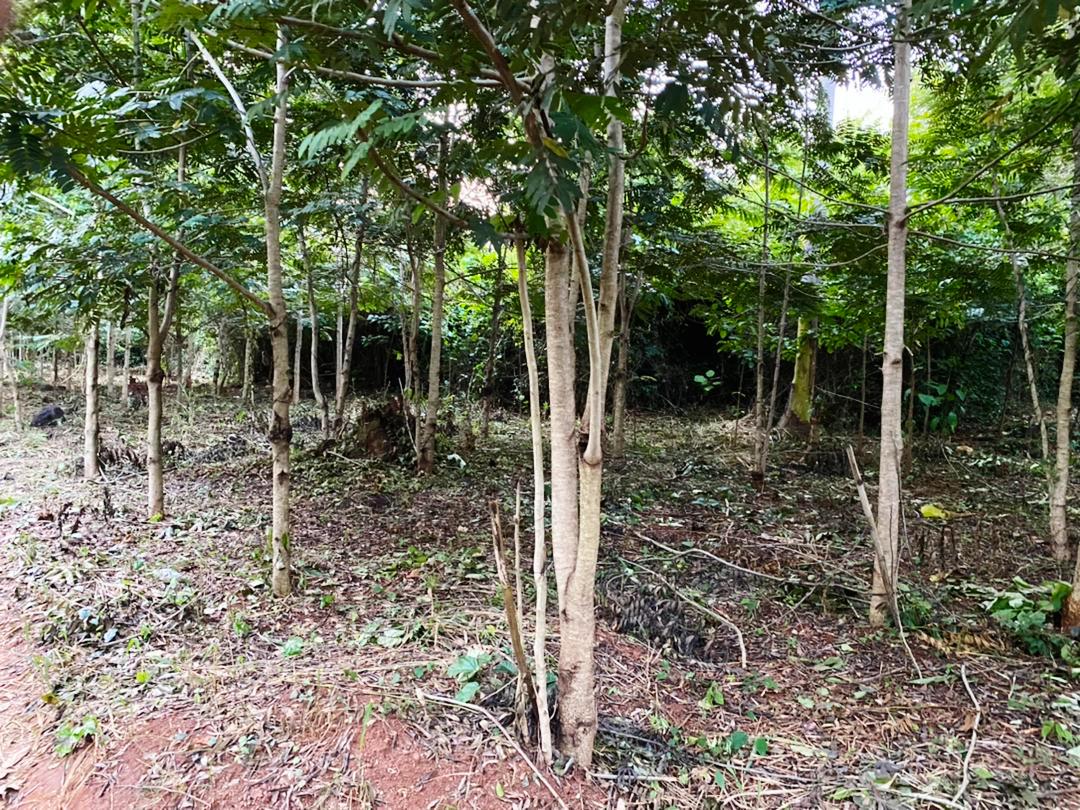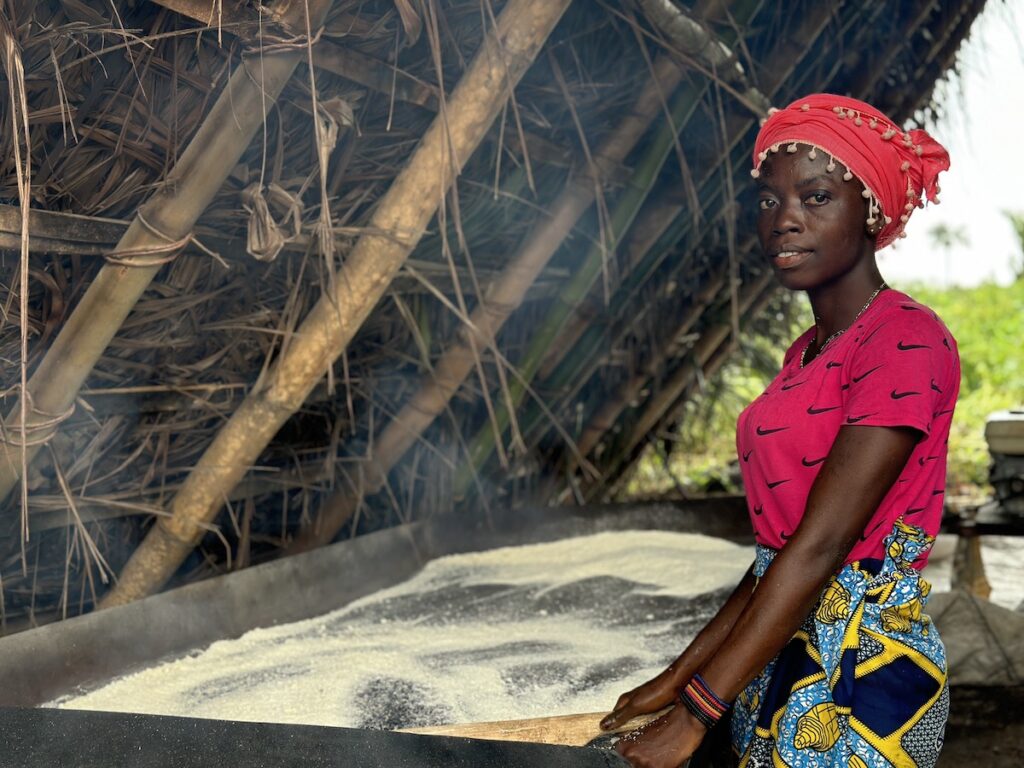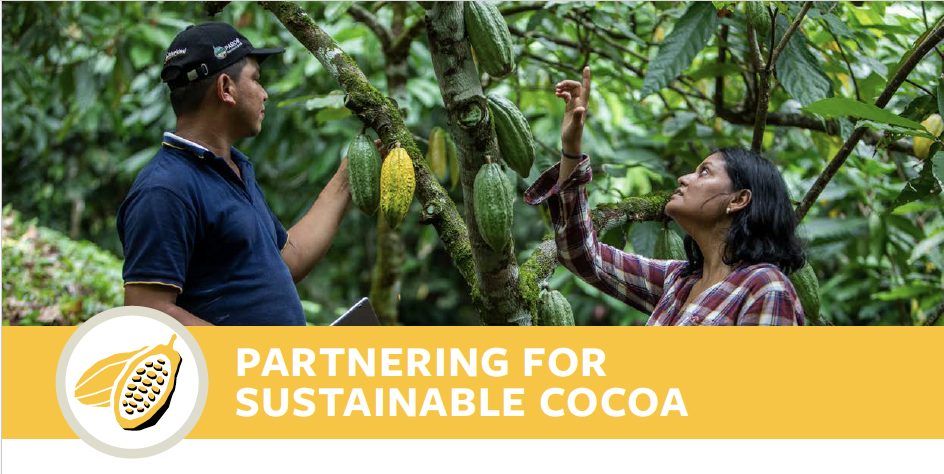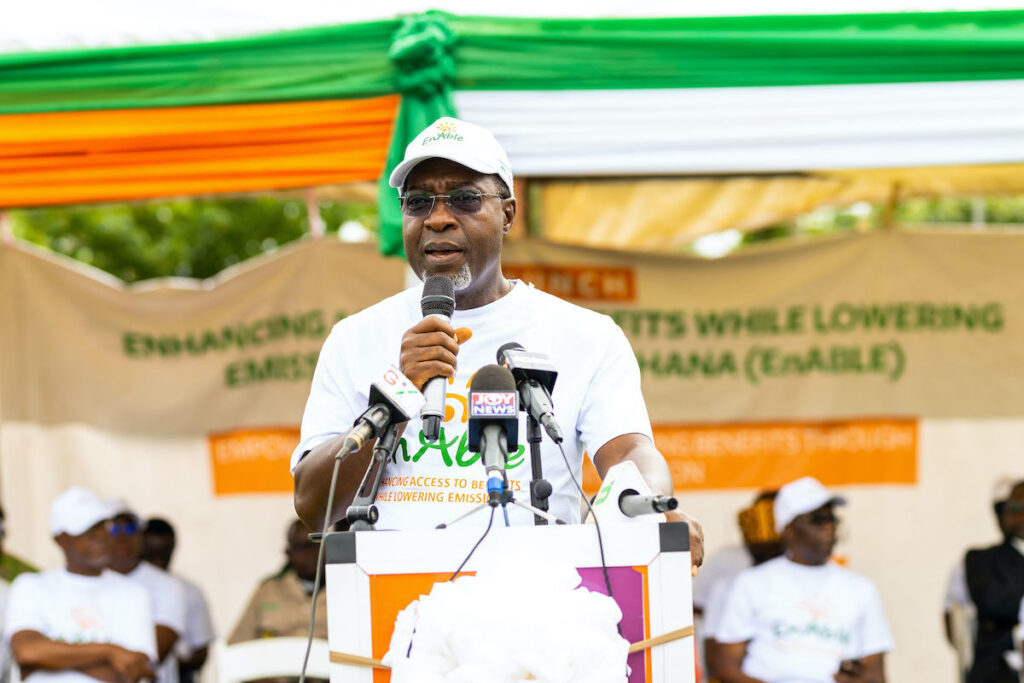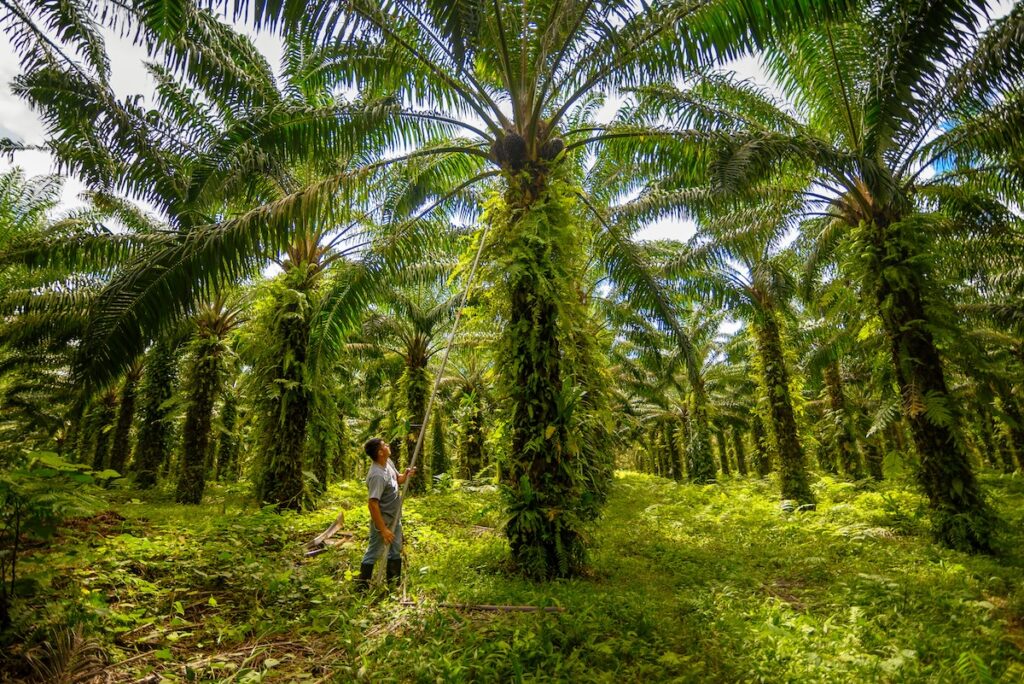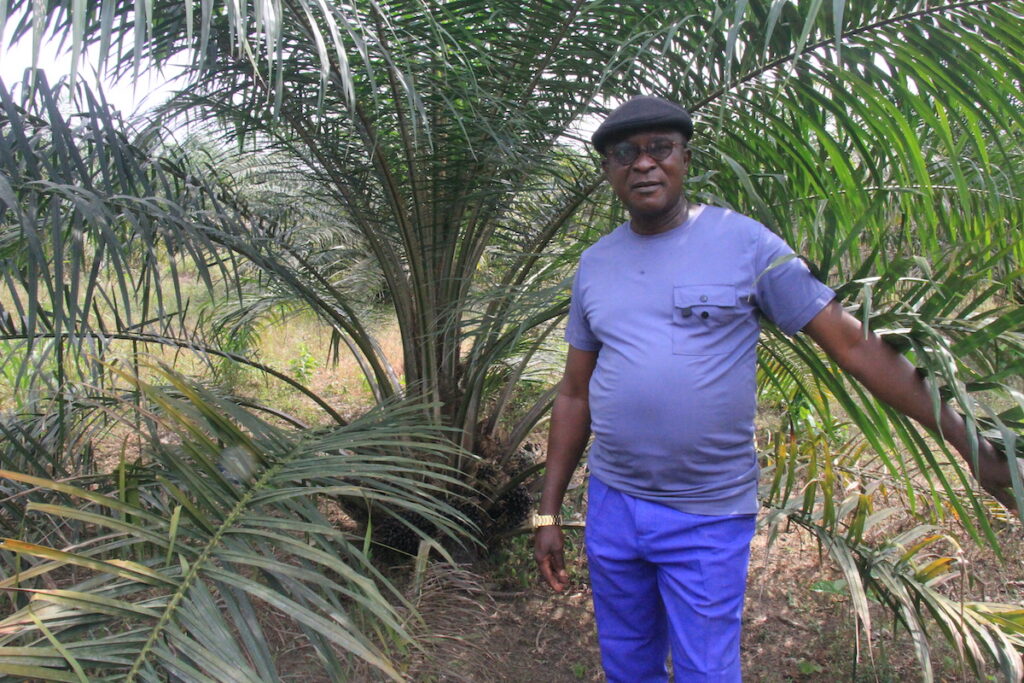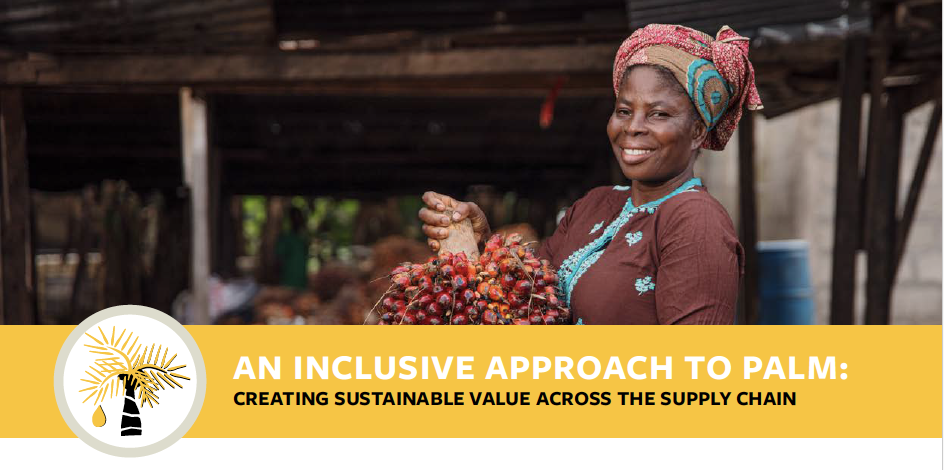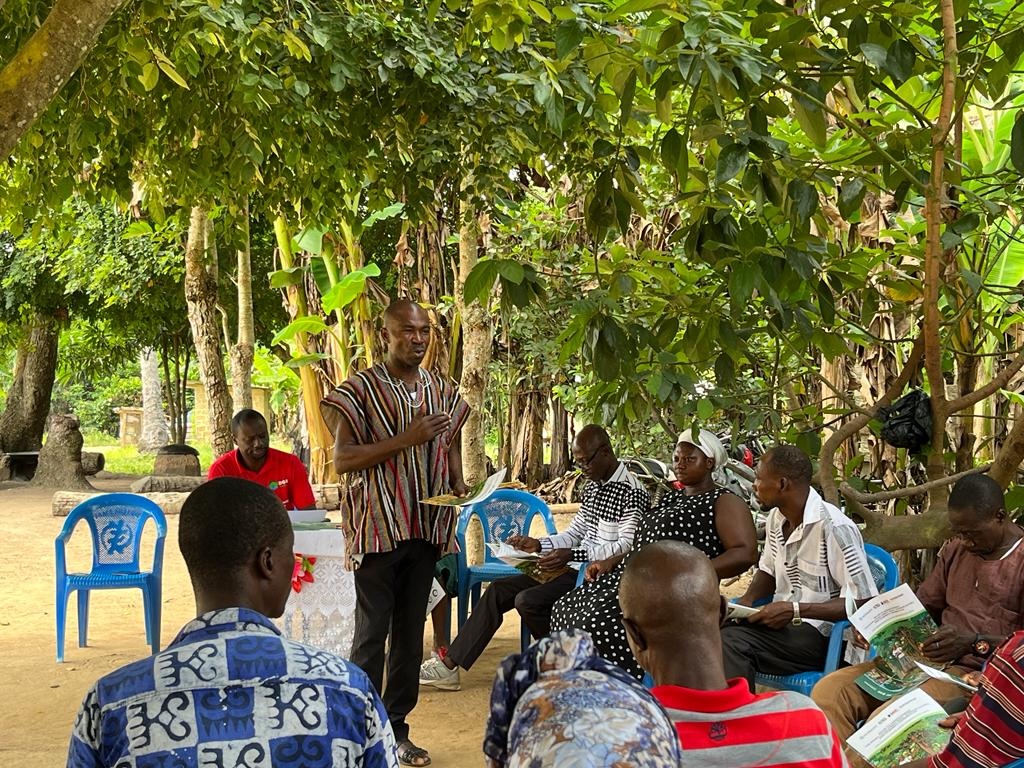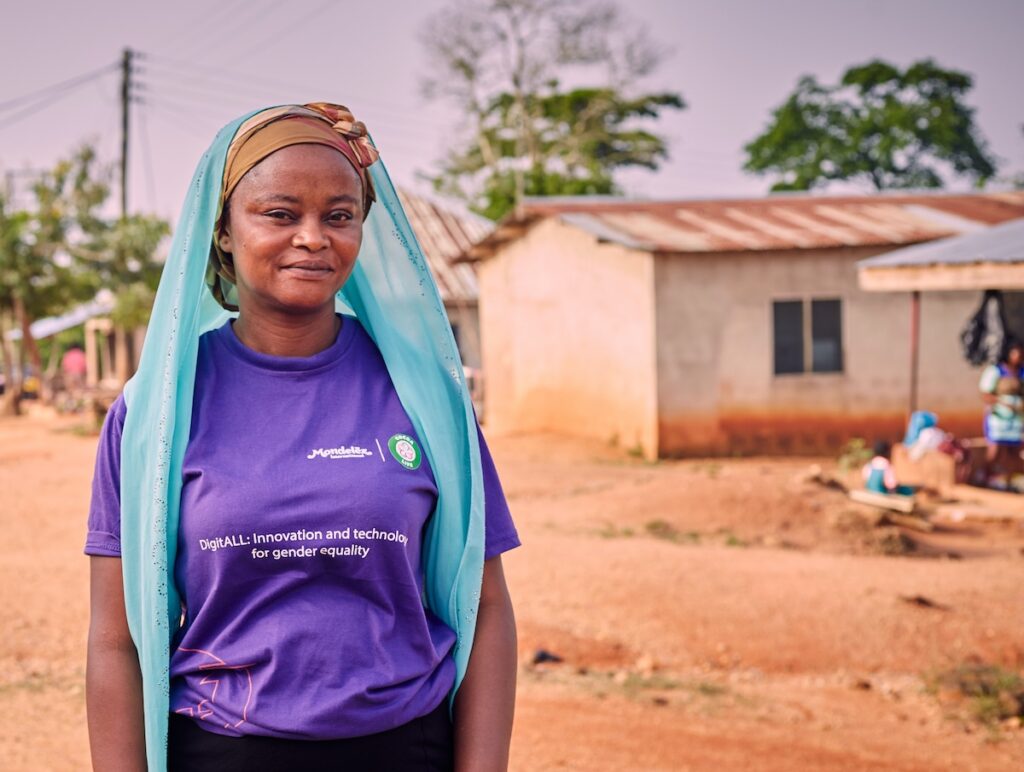Ten communities and nine community-based organizations, with support from the Ghana Dedicated Grant Mechanism (DGM) Project implemented by Solidaridad West Africa, have executed the tree planting initiatives to increase carbon stock and mitigate the impacts of climate change in their communities.
Funded by the World Bank, the project has been supporting individuals, local communities and community-based organizations with a small grant to implement climate actions that help improve their livelihoods and benefit the environment. In 2019, the 19 communities received over 435,000 cashew and economic tree seedlings for the restoration of degraded landscapes in and around their area.
Leveraging the adaptation and mitigation co-benefits of cashew agroforestry
Under the DGM project, Solidaridad has been promoting the agroforestry method of incorporating tree crops such as cashew with economic trees as a sustainable land-use model to facilitate landscape restoration while generating income for local communities.
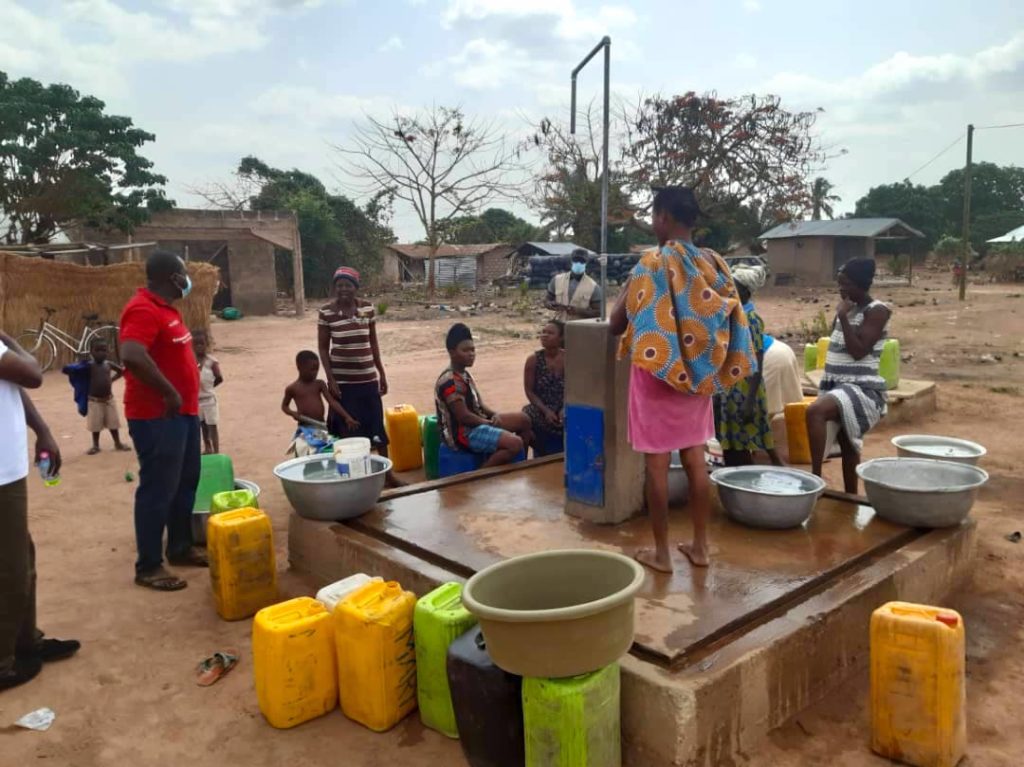
Lifelines for communities through boreholes
Thirty-seven communities now have access to solar-powered boreholes for potable water.
Cashew is preferred by local communities in the transition landscape of the Bono and Bono East regions where the crop grows and adapts well, offering a reliable return on investment. Since 2019, farmers in the beneficiary communities including Babato Kuma, Dawadawa, Bonte, Zabrama, Twumkrom, Dromankese, Akyeremade, Nsuhia and Nante have been involved in the planting of thousands of cashew and timber trees.
“As a community, we are happy to be contributing to climate mitigation by transforming a 20-acre bare land into a cashew plantation. Indeed, the greens we see all around us is good for the environment but we know, also, that we can benefit from the trees economically. In fact, we are confident that the proceeds from this initiative can help us to revamp our senior high school,” says Abubakar Siedu, the community focal person for the DGM project in Babator Kuma.
Abubakar attributes the high survival rates and spur in growth of the cashew trees to the good quality seedlings and field supervision Solidaridad provided, as well as the community’s commitment to safeguarding the investment.
Photos: 1) Cashew plantation with legumes as underplants; 2) Two-year old riparian trees along the Bosomamoa river; 3) Trees planted at the sacred grove
“Some migrant farmers, who are largely women, are already benefiting from the intervention by underplanting maize and groundnuts in the plantation for additional income while they tend the cashew trees until maturity,” he added.
Similarly, in the Dromankese community, the Charcoal Buyers and Tree Planters Association, a community-based organization, have established 13 acres of cashew and eight acres of mahogany and acacia woodlot on fallow lands.
Kwabena Awade, the vice-chairperson of the group said they are looking forward to their first harvest in the next 7 months.
He indicated that the group was also excited about the progress of the woodlot, which would provide charcoal producers in the community with a sustainable source of wood for their business instead of depending on the forest.
Incidentally, through the climate awareness created by the DGM project, our members are now more environmentally responsible in our trade, always exploring sustainable ways of producing charcoal.
Kwabena Awade, Vice-Chairperson of the Charcoal Buyers and Tree Planters Association
Tree plantations
In some jurisdictions, local communities and community-based organizations have preferred planting pure stands of economic trees. So far, 100,000 of such trees have been planted at different sites to restore the vegetative cover of over 300 acres of degraded sacred groves and forest lands, across the three project regions.
“For us, it is fulfilling to be part of a project that is reversing years of deforestation. We have planted over 6,000 trees and our last count revealed a survival rate of over 75 percent. We are certainly proud of what we have achieved together with Solidaridad,” says Gilbert Sanchez, a leader of the Asafo community.
Restoring watersheds
In other communities, the local people have opted to safeguard community rivers and streams by establishing natural vegetation around water bodies.
But for the DGM project intervention, the watershed which drains the Bosmoamoa river would have become a wasteland due to the wanton destruction of vegetation along the river. But after planting trees on the 17-acre watershed and creating a buffer zone, we have started experiencing a steady increase in the volume of water.
Confidence Appiah, Community Member from Ampoma
Building community resilience against climate change
“The interventions we provide under the DGM project build the resilience of local communities while enabling them to contribute to efforts towards realising Ghana’s commitment toward the Nationally Determined Contributions to reduce emissions and adapt to the impacts of climate change,” says Dr Winston Asante, the DGM project coordinator.
The Ghana Dedicated Grant Mechanism project is in line with Solidaridad’s climate innovations and sustainable landscape agenda. Solidaridad mainstreams climate action in all interventions by building the capacities of farmers and communities to adapt to climate impacts while reducing their carbon footprints.

